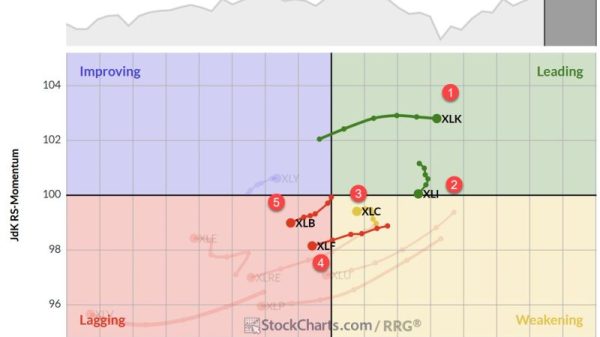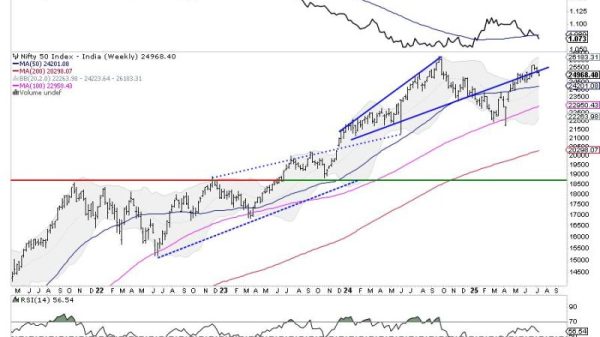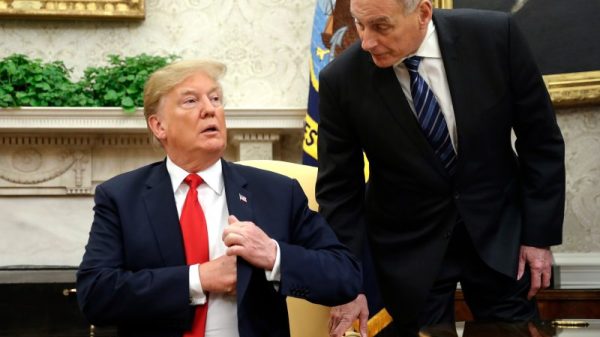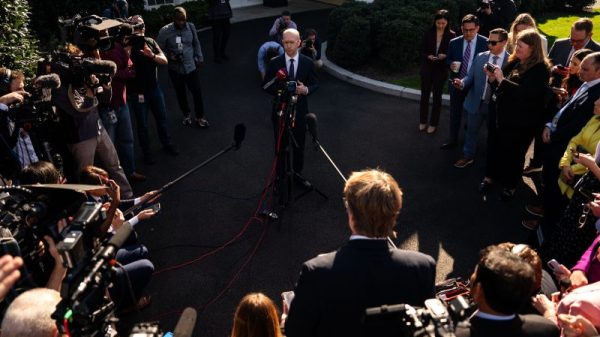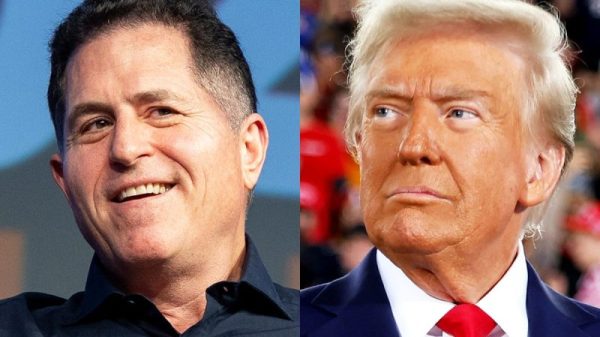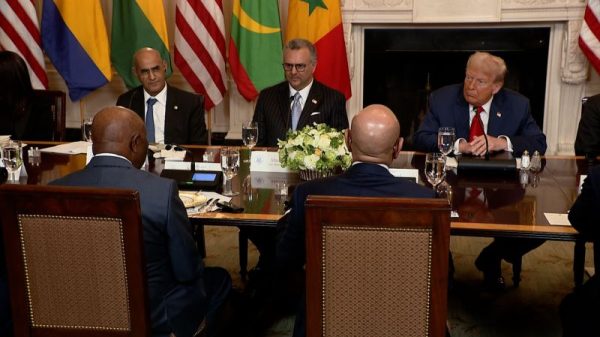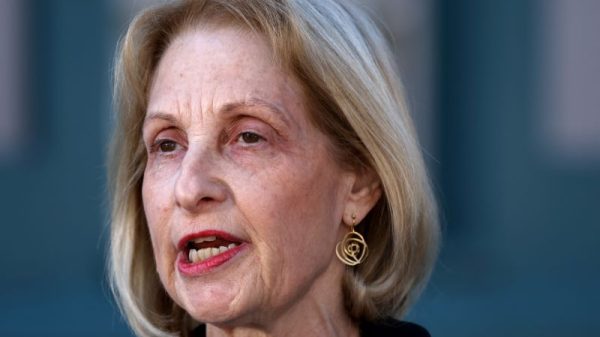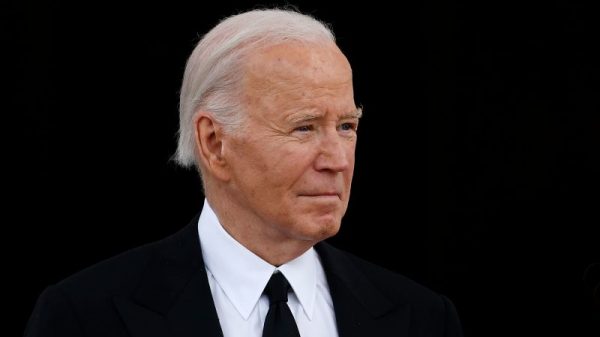Saudi Arabia and the United States are finalizing the details of a landmark deal to strengthen bilateral trade and defense – but an agreement will not be reached if the kingdom and Israel do not establish diplomatic relations, US officials said.
A defense treaty would solidify the seven-decade security alliance between Saudi Arabia and the US, and tie them ever closer to each other as US adversaries like Iran, Russia and China seek to expand their influence in the Middle East. Israeli Prime Minister Benjamin Netanyahu has long sought relations with Saudi Arabia, home of Islam’s holiest sites, as the move could domino across the wider Muslim world.
The US is currently negotiating one mega-deal involving three components, State Department spokesperson Matthew Miller said on Thursday.
The first component includes a package of agreements between the US and Saudi Arabia, another component has the normalization of relations between Saudi Arabia and Israel, and a third component for a pathway to a Palestinian state.
“All of them are linked together. None go forward without the others,” Miller said.
For normalization to be realized between Saudi Arabia and Israel, there has to be a pathway for a Palestinian state and “calm in Gaza,” US Secretary of State Antony Blinken told a panel at an economic conference in Riyadh this week.
“The work that Saudi Arabia and the United States have been doing together in terms of our own agreements, I think is potentially very close to completion, but then in order to move forward with normalization two things will be required: calm in Gaza and a credible pathway to a Palestinian state,” he said.
On the sidelines of the forum, Blinken met Saudi Crown Prince Mohamed bin Salman (MBS) to discuss the deal, the State Department said. Experts describe the Saudi-US pact as a “comprehensive set of understandings” that would include security, economic and technological guarantees to the kingdom, as well as support for its civilian nuclear program.
The normalization deal is expected to be modeled on the Abraham Accords, a set of treaties that saw four Arab states recognize Israel in 2020 that sidestepped the longstanding Arab demand for an independent Palestinian state as a prerequisite to recognition of Israel. MBS had said earlier that a pact with Israel would be “the biggest historical deal since the Cold War.”
In 2021, Netanyahu described the Accords as enabling Israel to replace “the old and dangerous doctrine of territories in exchange for peace and brought peace in exchange for peace, without giving up a single inch” and sought to expand what he called the “circle of peace.”
Since then, the Biden administration has made Israel-Saudi normalization central to its Middle East policy. The US and Saudi Arabia had continued discussions on the pact in 2023, and Blinken was expected to fly to Riyadh on October 10 last year to discuss the details, just three days before Hamas attacked Israel, postponing the effort.
The subsequent Israeli assault on Gaza, which has left the enclave in ruins and killed more than 34,000 Palestinians, may have changed the parameters of the deal for Saudi Arabia, analysts say. Now Israel’s acceptance of a component calling for an “irreversible” pathway to a Palestinian state would be key to the crucial normalization component of the wider deal.
“We have the broad outlines on what needs to happen on the Palestinian front…credible, irreversible [pathway to a Palestinian state],” Saudi Foreign Minister Prince Faisal bin Farhan told a World Economic Forum panel without referencing normalization with Israel.
Netanyahu has repeatedly rejected the prospect of an independent Palestinian state, arguing that it would hurt Israel’s security, and is adamant on pressing ahead with the Gaza war until Hamas is eliminated.
Those obstacles might see the kingdom attempt to close the bilateral deal without the normalization component of the agreement, analysts say. But such an approach would face major hurdles. An agreement establishing a firm US military commitment to Saudi Arabia’s security, without the normalization component, is unlikely to pass through the US Congress, Republican Senator Lindsey Graham has said.
“If there is a mutual defense agreement negotiated in the form of a treaty, it needs 67 votes in the Senate to become binding. Without normalizing the Israeli-Saudi relationship and ensuring the security needs of Israel regarding the Palestinian file, there would be very few votes for a mutual defense agreement between the US and Saudi Arabia,” Graham said on X in response to reports of Saudi Arabia opting for a “plan B” to the agreement.
Experts say that Biden could be able to bypass Congress to reach the agreement by modeling it around another security agreement it signed with Bahrain last year.
“There is another pathway, modeled around the Comprehensive Security Integration and Prosperity Agreement the Biden administration signed with Bahrain in September of 2023,” according to Firas Maksad, Senior Fellow and Director for Strategic Outreach at the Middle East Institute in Washington DC. The text of that pact “explicitly states that other parties may be invited to join,” he said.
However, there has been no indication that the Biden administration would opt to bypass Congress for the bilateral agreement with Saudi Arabia to pass.
A victory for Saudi Arabia
For Saudi Arabia, a bilateral agreement with the US would be a major victory, marking an end to the era when Biden sought to undermine MBS by pledging to turn his country into a “pariah” after the murder of Washington Post columnist Jamal Khashoggi at the hands of Saudi intelligence officials in Turkey.
The deal would also “consolidate America’s dominance in the Middle East for generations and would blunt the growing challenge posed by both China and Russia,” Maksad said.
MBS is eager to bolster the kingdom’s defenses and diversify the Saudi economy away from hydrocarbons, as he pursues an ambitious economic policy dubbed Vision 2030. The kingdom has a nascent civilian nuclear program that the Crown Prince is keen to develop with US support.
“Saudi Arabia would like to make a deal with the United States and this is probably the best time during the Biden administration to help some of the stickier issues get through Congress,” according to Karen Young, a senior research scholar at Columbia University’s Center on Global Energy Policy, referring to enrichment of nuclear materials.
Another sticking point in any US support for such a program is American opposition to local enrichment of uranium, a key component for nuclear power that could also be used to develop nuclear weapons. Saudi Arabia is rich in uranium deposits and has insisted on being able to enrich it domestically, which would be a first for an Arab state. Neighboring United Arab Emirates, for example, imports enriched uranium to power its nuclear plants.
On Wednesday, Democratic Senator Edward J. Markey, co-chair of the Nuclear Weapons and Arms Control Working Group, called on the Biden administration to ensure that Riyadh commits to forego enrichment and reprocessing of nuclear material, citing MBS as saying previously that Saudi Arabia would develop a nuclear weapon if Iran does too.
“The path towards Middle East peace should not include the prospect of a nuclear-armed Saudi Arabia, which would undermine the interests of the US, allies, and partners across the region,” he said in his letter.
The Saudi-US pact would make it incumbent on both countries to work together to deter and confront any external aggression, but doesn’t formalize it as a treaty alliance, according to Maksad.
“It is often described as Article 4.5, stopping just short of a treaty alliance that requires Senate approval but providing for a written commitment of mutual defense,” Maksad said, referring to the NATO treaty’s Article 5, which obliges all member states to come to the defense of any state facing attack.
“There will still be room for a multilateral security agreement that eventually includes Israel, along with Saudi Arabia, Bahrain, the U.S. and others, when political circumstances allow…the choice will be Israel’s, when it’s ready to put something on the table that moves the ball forward towards a two-state solution with the Palestinians,” Maksad said.







